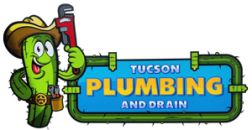
How to Avoid Pipe Bursts in The Winter
TL;DR: Winter in Tucson may be mild, but protecting your home’s pipes from freezing is still crucial. Pipes can burst due to pressure buildup from frozen water, even in relatively warm climates. Insulating pipes, especially in unheated areas, is vital to prevent freezing. Allowing faucets to drip during cold nights can also help. Tucson Plumbing and Drain is here to assist with any plumbing needs.
Winter in Tucson, AZ, might not bring the same frigid temperatures as other regions, but it’s no excuse to overlook the importance of protecting your home’s plumbing from the potential risks posed by colder weather. Even in our generally mild climate, frozen pipes can pose a significant threat, leading to costly damage and inconvenience. In this comprehensive guide, we’ll delve into the reasons why pipes are prone to bursting in winter, the critical role of insulation in preventing frozen pipes, practical strategies such as using faucets to prevent freezing, and we’ll conclude with some valuable insights on effectively safeguarding your pipes throughout the winter months. Remember, when it comes to maintaining your plumbing system in Tucson, Tucson Plumbing and Drain is your trusted local partner.
Understanding the Risks: Why Pipes Burst in Winter
While the desert climate of Tucson offers relatively mild winters compared to other regions, it’s essential to understand why pipes can still burst during the colder months. Contrary to common misconceptions, pipes don’t burst due to ice expanding within them. Instead, it’s the significant increase in water pressure between the ice blockage and the closed faucet that causes the pipe to rupture. This pressure buildup occurs when water freezes and expands, potentially leading to leaks or bursts anywhere in your plumbing system. Even in Tucson’s milder winters, overnight temperatures can drop low enough to pose a risk, especially for exposed or poorly insulated pipes.
Insulation: Key to Preventing Frozen Pipes
One of the most effective ways to mitigate the risk of frozen pipes is by ensuring proper insulation. This is particularly crucial for pipes located in vulnerable or unheated areas of your home, such as basements, crawl spaces, or attics. Insulating sleeves or foam pipe insulation can serve as a protective barrier against the cold, helping to maintain a consistent temperature and prevent freezing. By insulating your pipes adequately, you create a buffer against temperature fluctuations, reducing the likelihood of frozen pipes and potential damage to your plumbing system.
Drip, Drip, Drip: Using Faucets to Prevent Freezing
On particularly cold nights, implementing the simple strategy of allowing faucets to drip can make a significant difference in preventing freezing. Running water is less susceptible to freezing, so keeping a slow drip flowing through your faucets can help alleviate pressure within the pipes and decrease the risk of freezing. Pay close attention to faucets located along exterior walls or in unheated areas of your home, as these are more vulnerable to freezing temperatures. While it may result in slightly higher water usage, the added protection against frozen pipes is well worth the cost and effort.
Final Thoughts
Protecting your home’s plumbing system from the potential hazards of winter is paramount, even in Tucson’s relatively mild climate. By understanding why pipes are prone to bursting in winter, prioritizing proper insulation, and implementing preventive measures such as dripping faucets, you can effectively safeguard your pipes and prevent costly damage. Should you require assistance with winterizing your plumbing or addressing frozen pipes, Tucson Plumbing and Drain stands ready to provide expert guidance and reliable solutions. Don’t hesitate to reach out for professional assistance to ensure that your plumbing system remains in optimal condition throughout the winter season.
FAQ
How do I know if my pipes are at risk of freezing in Tucson’s winter?
Look out for signs such as drops in temperature below freezing, exposed pipes in unheated areas, or previous instances of frozen pipes. Taking preventive measures, such as insulating pipes, is advisable in these situations.
What should I do if my pipes freeze in Tucson?
If you suspect your pipes have frozen, turn off the water supply immediately to prevent further damage. Thaw the pipes using gentle heat sources like towels soaked in warm water or a hairdryer on low heat. Avoid using open flames or high heat, as this can damage the pipes.
How can I prevent my outdoor faucets from freezing in Tucson’s winter?
To prevent outdoor faucets from freezing, disconnect and drain garden hoses, and consider installing frost-proof hose bibs. Insulate outdoor pipes and faucets with foam covers or towels during freezing temperatures, and keep the faucets dripping slightly to maintain water flow.
When should I call a professional plumber for help with frozen pipes?
If you’re unable to thaw frozen pipes yourself or suspect damage to the pipes, it’s best to call a professional plumber like Tucson Plumbing and Drain. They have the expertise and equipment to safely thaw pipes and repair any damage to your plumbing system.
Have any questions?
Give us a call 24/7!
(520) 655-6400
Or
